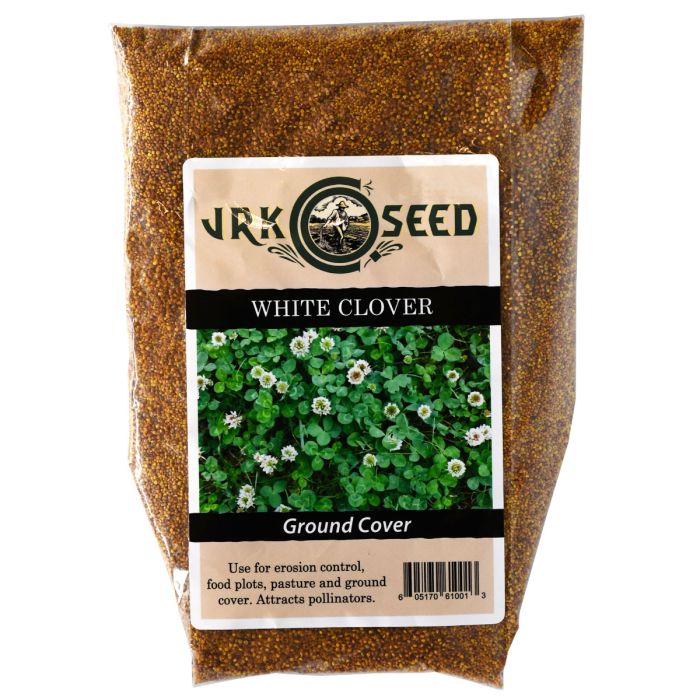THE GARDEN SCOOP: On Lawn Seeding Success
Learn lawn seeding success through one of our top experts Tom!

White clover is a perennial broadleaf used often as ground cover. White clover is characterized by its three-part leaves and white blossoms resembling pom-poms.
We have a wide range of grass seed blends formulated to solve a plethora of landscaping problems, wants & needs. Our JRK Seed grass seed mixes are formulated specifically for weather and soil conditions of the upper U.S. Midwest region. The seed you know will grow! Our turf experts strive to deliver superior seed, product, and overall experience to all of our customers.
White clover is a perennial broadleaf used often as ground cover. White clover is characterized by its three-part leaves and white blossoms resembling pom-poms.
Bare Ground: 1/2 lb. per 1000 sq. ft.
Overseeding: 1/4 lb. per 1000 sq. ft.
| Application Rate | 1/2 lb. per 1000 sq. ft. |
|---|---|
| Application Rate | 1/4 lb. per 1000 sq. ft. |
| Brand | JRK Seed and Turf Supply |